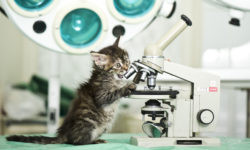Science Reporting Should Be Above Personal Demonization

Last weekend, the New York Times published a story criticizing the ascension of Dr. Nancy Beck from Estée Lauder toxicologist to EPA Deputy Assistant Administrator. Rather than aiming criticism at specific policy proposals, the Times attacked Dr. Beck personally. In an age where discrimination against female scientists is finally coming to light, our Chief Science Officer Dr. Joseph Perrone asks: Shouldn’t the media be above such personal attacks?
Dr. Perrone explores this topic in an article for the Independent Journal Review. Read an excerpt of Dr. Perrone’s piece below, or the entire piece on the Independent Journal Review website:
The truth is, all industries have a degree of self-interest in employing and engaging highly qualified individuals. Occasionally, these individuals bring their invaluable real-world experience to government agencies. Just as academics and activists can provide valuable input, so too can those involved in developing the ingredients that make products safer, more environmentally friendly, or less costly.
Activists and grant-driven academics are as much an “industry” as the publicly traded companies that create the products of chemistry. Their livelihoods and their employers are supported by billions of dollars in government research grants and donations from ideologically aligned private donors.
Bias and conflict of interest are regularly invoked to discredit industry-associated scientists, but an honest assessment would acknowledge that academic and environmental communities are often even more dependent on a particular outcome because the credibility of their past studies or new funding for their institution may be put at risk following a conflicting discovery in the future.
For those interested in achieving the most robust public health policies, diversity of opinion should be celebrated, not demonized.





